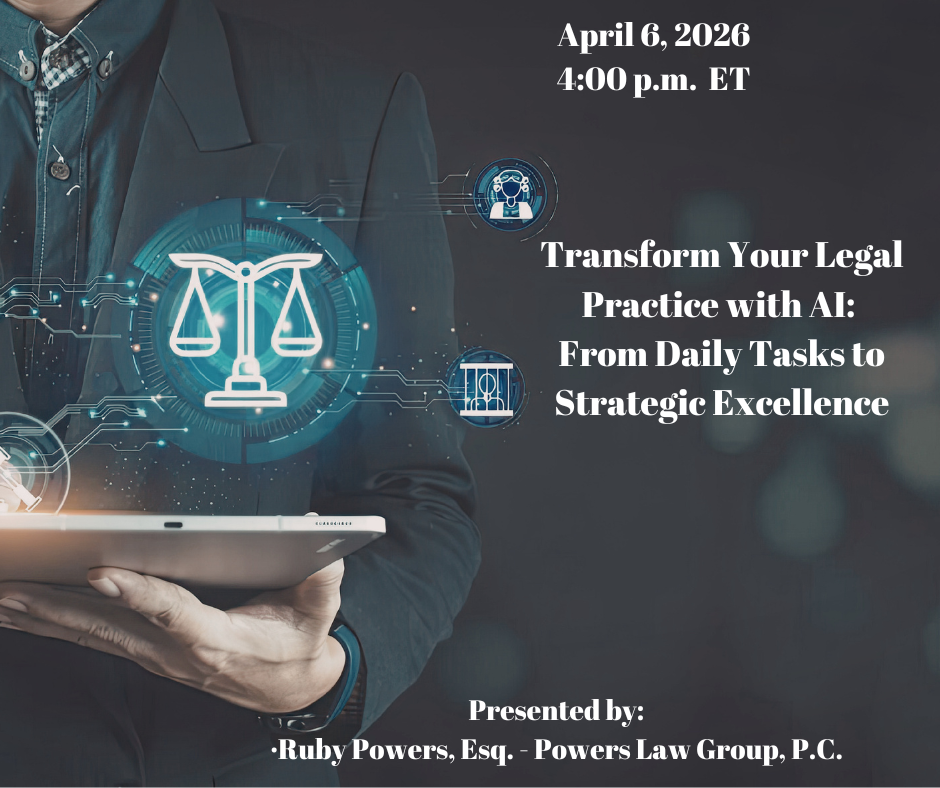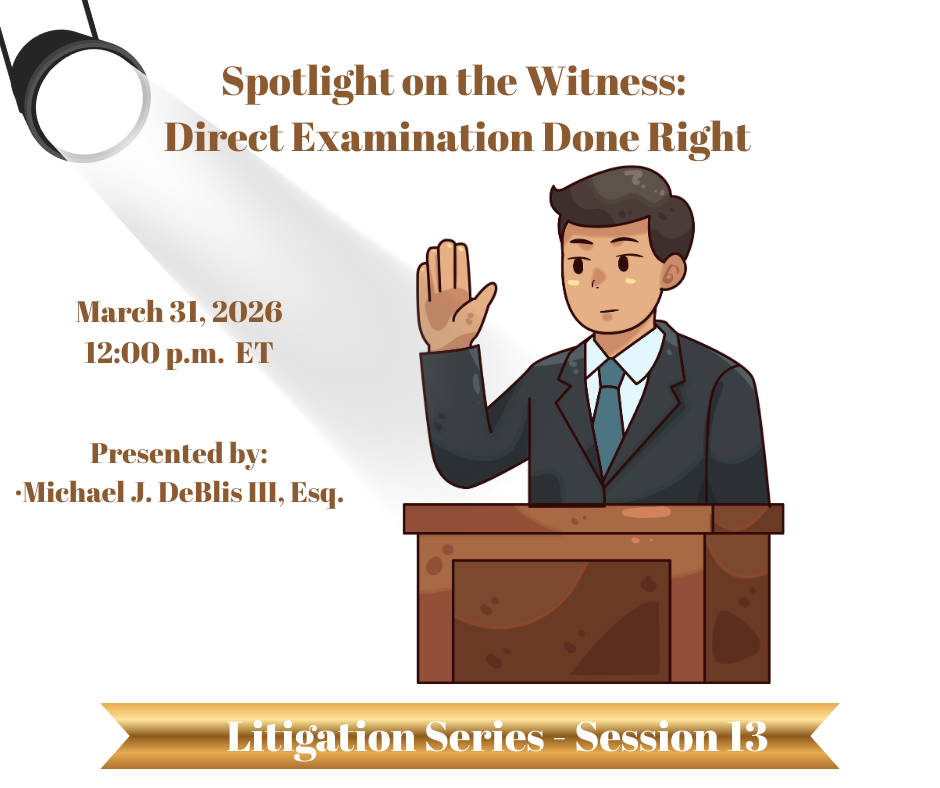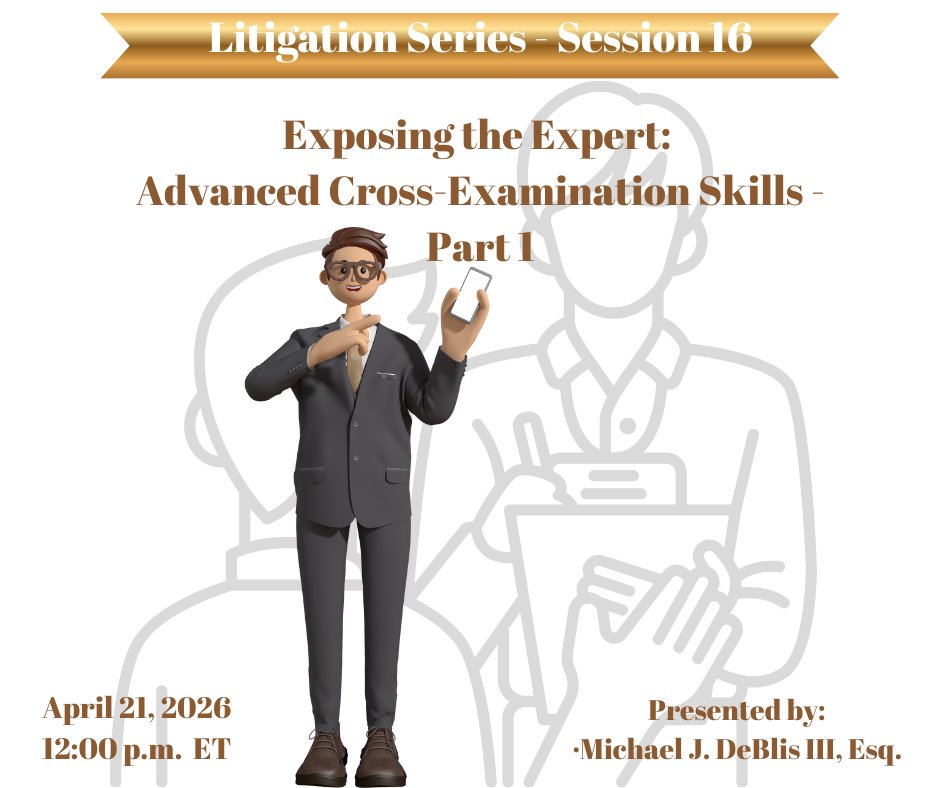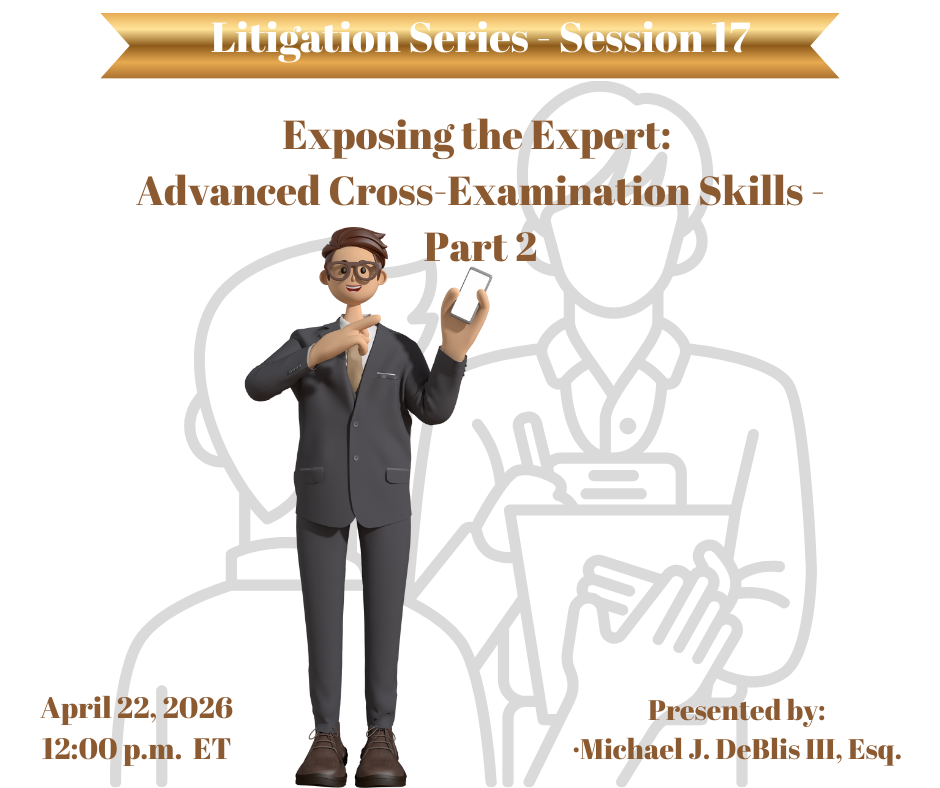
Exciting new series on “Voice, Body and Movement for Lawyers – How to connect with the jury and find Justice Through Dramatic Technique!”
Click here to find out more
As artificial intelligence tools like ChatGPT become more integrated into our daily lives, it's essential to understand not just how they work—but how to use them responsibly. This class explores the ethical considerations of AI, including how bias can show up in outputs, where AI models get their information, and what responsibilities users have when interacting with these tools.
Participants will learn how to spot misleading or incomplete responses, protect sensitive data, and ensure AI is used fairly, ethically, and within acceptable boundaries. Whether you're a casual user or someone thinking about AI in a workplace or educational setting, this session provides the awareness and skills to use ChatGPT—and similar tools—wisely.

This course provides a strategic roadmap for attorneys to transition from administrative burnout to ...

The direct examination presentation outlines how attorneys can elicit truthful, credible testimony w...

Part 1 - This program focuses specifically on cross?examining expert witnesses, whose credentials an...

This program will address some of the most common intellectual property (IP) issues that arise in co...

This Shakespeare?inspired program illustrates how Shakespearean technique can enrich courtroom advoc...

Many lawyers may not fully understand the Bar rules and ethical considerations regarding client repr...

This CLE session introduces attorneys to budgeting and forecasting concepts used in corporate planni...

Part 2 - This program will continue the discussion from Part 1 focusing specifically on cross?examin...

As artificial intelligence becomes the engine of the global economy, the value of "AI-ready" data ha...

Learn about the latest trends in Federal Suspension and Debarments. This presentation will assist yo...